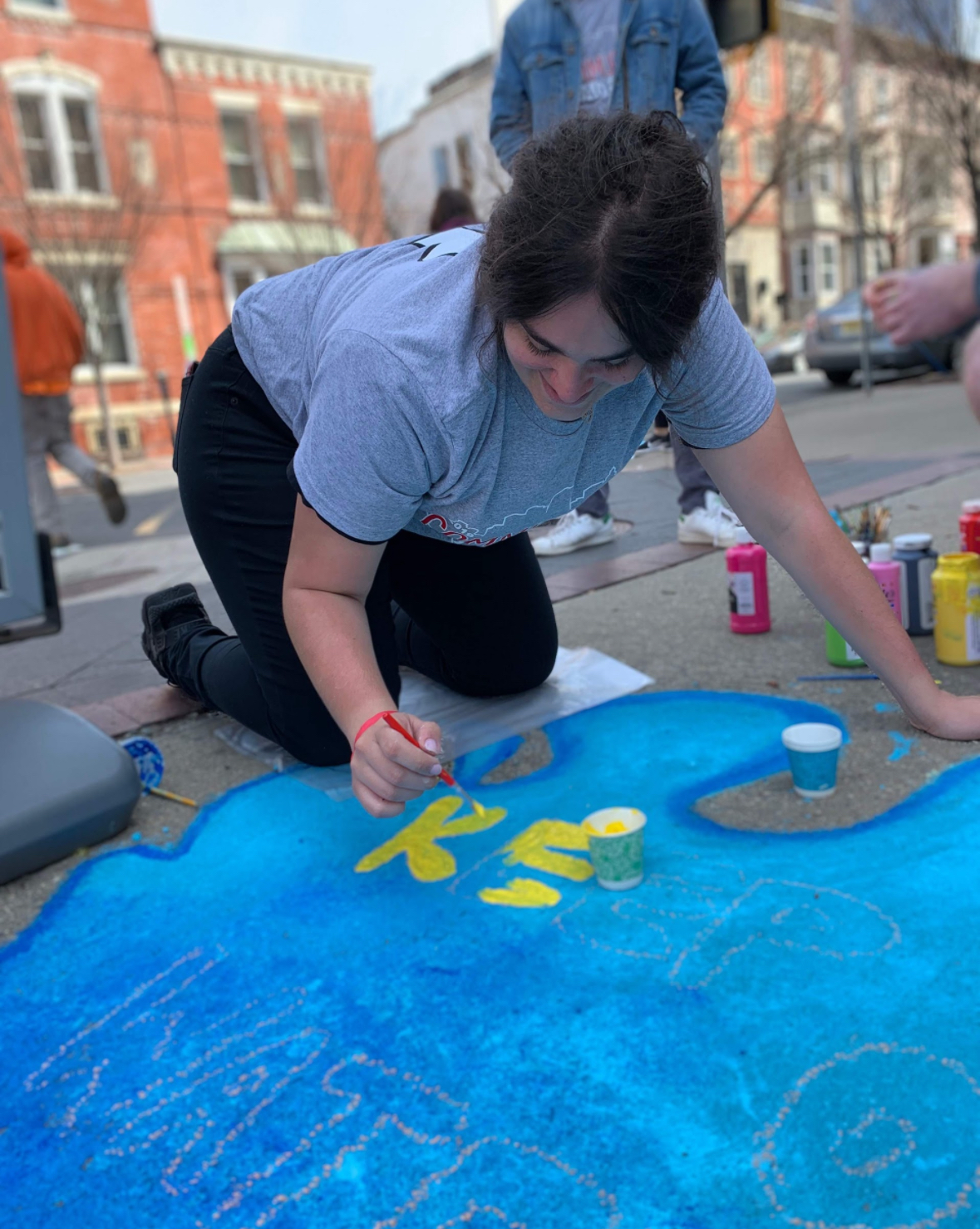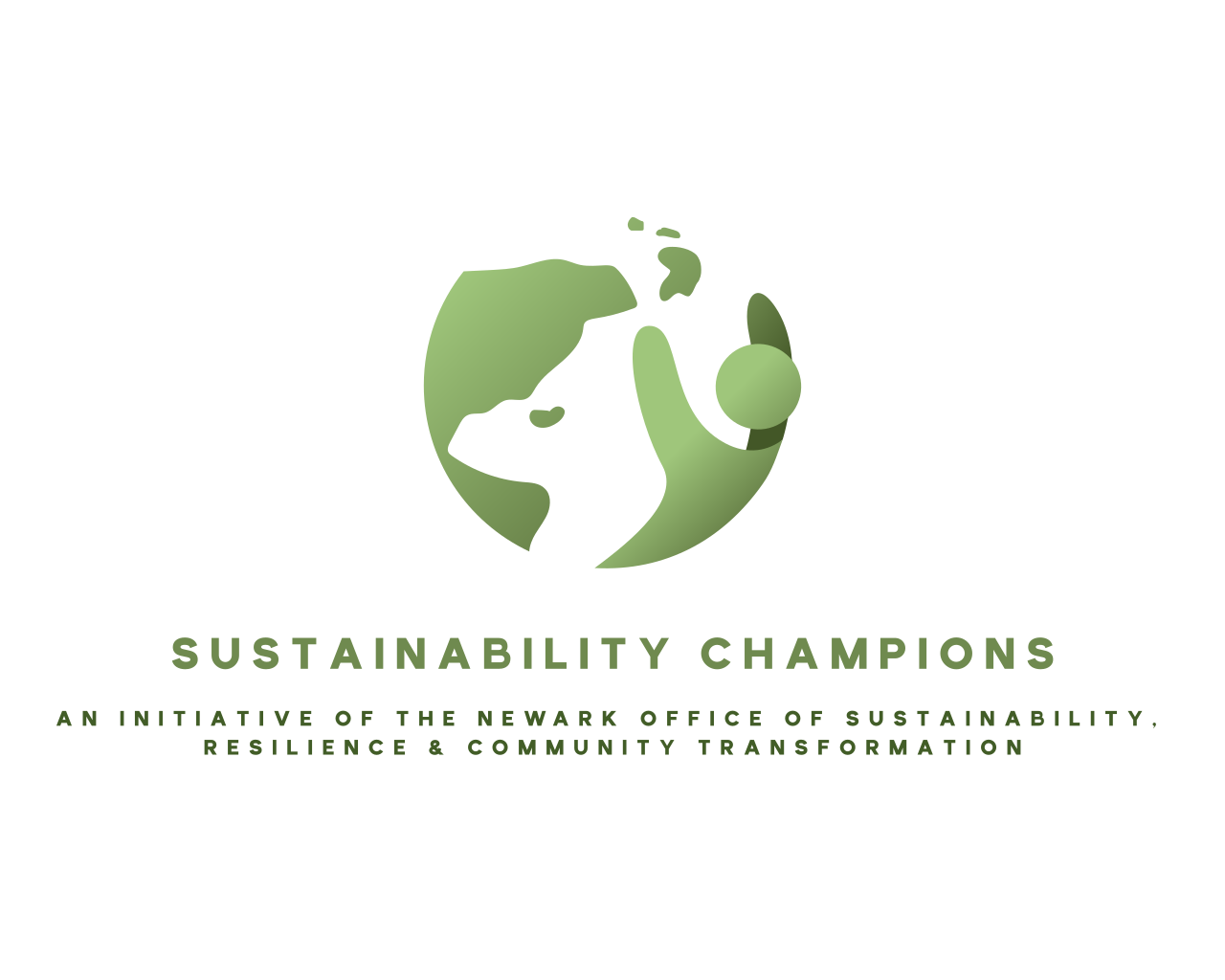Department
Office of Sustainability, Resilience & Community Transformation
The Office of Sustainability, Resilience and Community Transformation is a City-led effort to create a cooler, healthier, and more resilient city for all residents. We drive community-centered sustainability efforts to advance climate resilience and environmental justice across Newark. We work with municipal departments, the Newark Environmental Commission, residents, and others to create a vibrant community for all residents, especially the most vulnerable, in the face of weather extremes.
We advance sustainability and climate resilience in Newark through a multi-pronged strategy.
- Amplify Newark's tree canopy
- Increase access to nourishing, locally-grown food
- Reduce food waste through Compost Newark
- Address extreme heat through the Cool Roof Newark Initiative
- Foster climate-resilient communities
- Transition to clean energy
- Cultivate resident-led community transformation through the Love Your Block, Newark! and Gen Green Initiatives
The Office of Sustainability, Resilience and Community Transformation is dedicated to advancing the goals in the Sustainability Action Plan (2013) found here.
Our team engages with residents through meaningful community building with multilingual staff with fluency in several languages commonly spoken by Newarkers including Portuguese and Spanish.

“All of Newark’s children should grow up in an environment that nurtures them. This means getting dangerous toxins out of our neighborhoods, and making sure families have access to the same environmental assets that their suburban counterparts enjoy – parks, playgrounds, trees, healthy food, affordable energy bills, working water infrastructure, and green job opportunities,” said Mayor Ras J. Baraka.

Rooted In Newark
On Earth Day, the Office of Sustainability, Resilience and Community Transformation alongside Mayor Ras J. Baraka launched the 'Rooted In Newark' Initiative — an effort to plant at least 5,000 trees in Newark over the next ten years. Rooted In Newark is more than trees. It’s about creating cooler, greener, and healthier neighborhoods, one tree at a time. In partnership with residents, nonprofits, and community leaders, we’re working together to build a more resilient and livable Newark for generations to come.
Here's what to know:
- At least 500 trees will be planted every year in all five wards for the next ten years.
- Residents can request a tree to be planted on their street using SeeClickFix.
- The City published its first-ever Urban Forestry Manual to guide planting and care.
- A new Shade Tree Committee will advise the City and support community engagement in urban forestry.
Mayor Baraka put it best: “This project is about more than just planting trees—it’s about planting hope, health, and a brighter future for our city.”
We encourage you to join us. Whether it’s requesting a tree, volunteering at a planting event, or sharing this message with your network, your involvement helps this vision take root.
For more information take a look at the Rooted In Newark webpage.

Nourishing Newark
In 2022, the City of Newark, under the leadership of Mayor Ras J. Baraka, launched the Nourishing Newark Community Grants Program, where the City of Newark awarded twelve local nonprofit organizations over $1.5 million to address food insecurity intensified by the economic fallout from the COVID-19 pandemic. Through this program community-based organizations engaged in urban agriculture, cooperative food distribution, and educational programming. These organizations are pivotal in creating resilient food systems, reducing reliance on external food sources, and empowering local residents.
This program reflects Newark’s commitment to fostering sustainable, community-driven solutions to hunger and food access challenges, particularly in neighborhoods classified as “food deserts.”
Although the Nourishing Newark Community Grants initiative has sunset, the Office of Sustainability, Resilience & Community Transformation is building on the success of the initial Nourishing Newark Community Grants Program, by expanding our support for grassroots food initiatives by directly resourcing residents and community groups with seeds, seedlings, and fruit trees, and supporting the annual Citywide Community Garden tour hosted by former Nourishing Newark grantee, Newark Science and Sustainability.
Compost Newark
The City of Newark’s Office of Sustainability is launching of a new pilot composting initiative that will focus on educating residents on the benefits of composting and equipping them with the practical tools to begin at home. Through a series of hands-on workshops held at community gardens, residents will learn what materials can be composted, how to maintain a tumbler, and the positive impact on soil health and the climate. The initiative will partner with Love Your Block! Newark grantees, local community growers, and other community spaces host workshops from September to October at each ward. A total of 20 compost tumblers will be distributed to workshop participants for a subsidized price of $25. Priority will be given to households and active community gardens.
Climate Resilient Communities
It’s been well-documented that climate change doesn’t affect all communities equally, and Newark, NJ is a perfect case study for the connection between climate education and mitigation, and environmental justice. In recent years, thousands of Essex County homes, schools, and businesses confronted major power outages and faced costly property damage following severe flooding caused by historic cyclones like Superstorm Sandy, Hurricanes Ida and Irene, and Tropical Storm Isaias. This initiative provides solutions for Newark communities most affected by severe storms.
In partnership with Solar One, the Newark Resilient Initiative, combines youth-led community education and the community emergency response hubs through the construction and the deployment of small-scale solar power generation and storage systems to provide supplemental power to local residents when the electrical grid is down.
Key Components:
- Community Energy hubs: Solar chargers were placed in all five wards of the city, fostering the creation of a strong solar community throughout Newark
- Youth-focused education: High school students trained to build and solar panels and solar chargers and participated in a summer internship program
- Community Engagement: Eight community engagement events focused on recruiting and promoting solar chargers. The community was actively involved in training sessions, demonstrations, and disaster preparedness exercises.
- Stakeholder Involvement: Partnerships with a wide array of local and regional stakeholders (e.g., the National Oceanic and Atmospheric Administration (NOAA), community-based organizations, community gardens/farms, health centers, etc.).


Clean Energy Program
Newark's reliance on fossil fuel-generated energy and transportation has led to significant economic challenges and negative public health outcomes for residents. Many residents face energy burdens, which refers to spending a high percentage of their household income on energy bills, along with health issues related to poor air quality from transportation and building emissions. By transitioning to energy-efficient systems, renewable energy sources, and electric vehicles (EVs), we can reduce energy bills and lower the overall cost of living for our residents while also improving their health and well-being.
The Office of Sustainability, Resilience and Community Transformation is addressing these concerns by adopting and implementing the first-ever Community Energy Plan that supports a fair and equitable transition to an energy-efficient and renewable-energy-sourced Newark, including the following initiatives:
- Reducing Harmful Emissions
- Increasing Energy Efficiency
- Fostering a Clean Energy Economy
- Developing a Green Workforce
We recognize that reaching our clean energy goals in a way that maximally benefits Newark residents will necessitate a sustained effort and active participation from all individuals in Newark. Facilitating planning processes that prioritize public education, involvement, and decision-making are core commitments of the Office of Sustainability, Resilience and Community Transformation.

Love Your Block, Newark!
Love Your Block, Newark! connects residents with City departments and community organizations to implement neighborhood-level beautification, revitalization, and community-building projects. Administered by the Office of Sustainability, Resilience & Community Transformation, the goal of the Love Your Block, Newark! program revitalizes and beautifies our neighborhoods one block at a time. Since the start of the program, 61 local groups have been awarded Love Your Block, Newark! grants.







